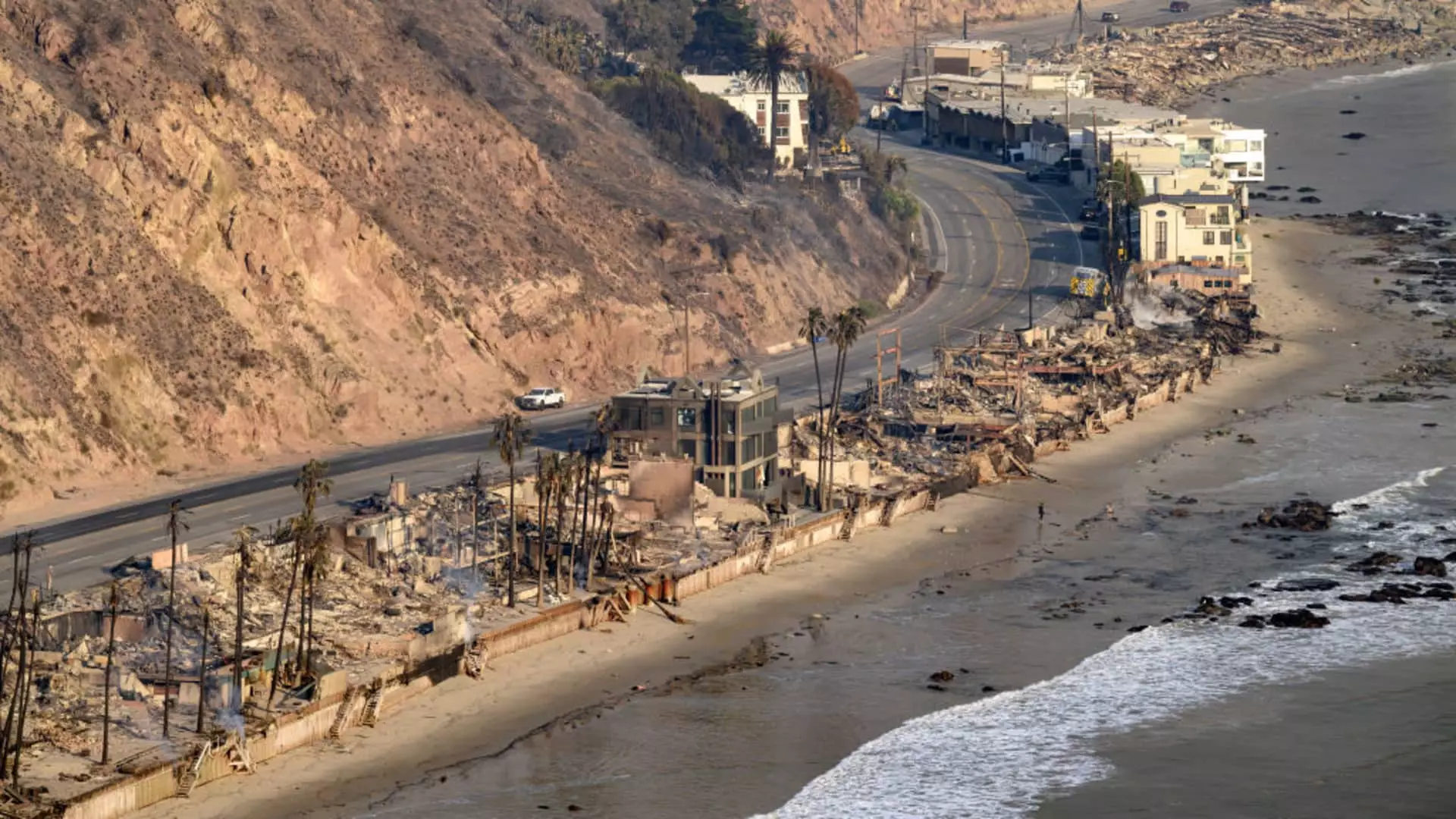As the destructive wildfires continue to ravage parts of Los Angeles, airline companies are grappling with the implications for air travel. With thousands of homes and structures lost along with widespread power outages and water shortages, American Airlines, United Airlines, Southwest Airlines, and JetBlue Airways are stepping up to provide relief to travelers in distress. The situation demands attention as balancing public safety and travel convenience becomes increasingly challenging.
In the face of this crisis, airlines have adopted a proactive stance by extending travel waivers. They aim to alleviate the burdens that travelers might face during these volatile times. The waivers allow passengers, whose plans include routes to and from Southern California airports such as Hollywood Burbank, Los Angeles International, Ontario International, and John Wayne Airport, to change their travel dates without incurring fees. This flexibility is essential as many individuals navigate obligations while dealing with the unpredictable circumstances brought on by the wildfires.
Despite the ongoing emergencies, reports indicate that the primary airports in the Los Angeles area remained operational as of Friday, as validated by flight-tracking service FlightAware. However, the reality on the ground tells a different story. Areas like Pacific Palisades are under stringent water use advisories, and local authorities have mandated that residents either boil their water or rely on bottled supplies. This stark contrast highlights the precarious balance of maintaining regular air travel activities while a natural disaster looms.
The presence of evacuation orders across several neighborhoods adds another layer of complexity to the already intricate logistics of flight operations. While flight schedules may persist, the safety of individuals in affected zones takes precedence, demonstrating the broader implications of such disasters on urban infrastructure and travel dynamics.
The tension, however, is palpable within the airline industry as the implications of the fires extend beyond immediate operational adjustments. Delta Air Lines recently indicated a noticeable decline in flight sales to Los Angeles, a critical hub for both business and leisure travelers. Glen Hauenstein, Delta’s president, revealed during an earnings call that the airline has been closely monitoring their sales figures by region. While there hasn’t been a spectacular surge in cancellations, the noticeable dip in demand cannot be overlooked.
The impact of natural disasters on airline dynamics often reverberates throughout their fiscal strategies. Hauenstein pointed out that while current losses might not dramatically affect their quarterly results, there is an anticipated spike in demand once recovery efforts gain momentum. Historically, after such disasters, there is often a push for travel due to reconstruction efforts, illustrating an intriguing juxtaposition: devastation leads to urgent yet hopeful travel opportunities.
Although the immediate threats posed by the wildfires cannot be understated, the airline industry and communities alike must remain forward-thinking. The resilience demonstrated after such crises typically fosters a resurgence in travel, opening pathways for essential economic recovery and support for rebuilding efforts. Airlines must position themselves to shift focus from crisis management to fostering travel that embraces the potential for renewal.
Amidst expressions of concern for the wellbeing of affected individuals, there lies an underlying corporate responsibility involved in supporting the community during recovery. Engaging with local initiatives and disaster-relief programs may serve as a stepping stone, fostering goodwill that could benefit airlines in the long term.
As Los Angeles contends with the aftermath of wildfires, airlines find themselves at a strategic crossroads. They face not only the immediate challenges of disrupted travel but also the larger repercussions on their operational landscape and economic viability. Flexibility, compassion, and a keen eye on future demands will be essential as both the airline industry and the community endeavor to navigate a post-disaster world. With the flames of adversity still flickering around them, airlines must adapt, innovate, and ultimately serve as a bridge toward recovery for Los Angeles.

